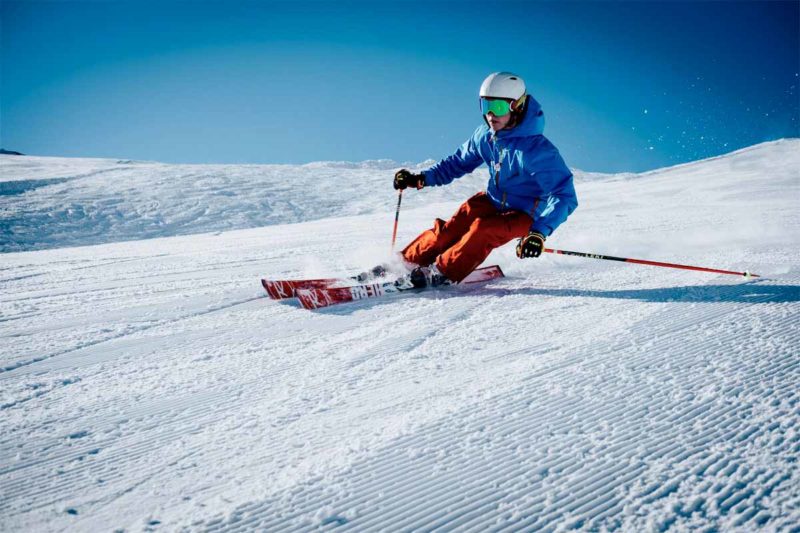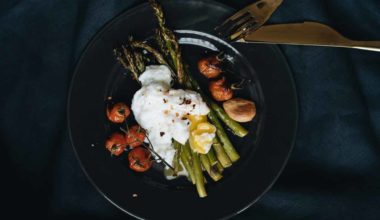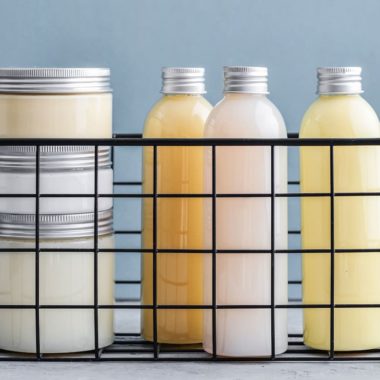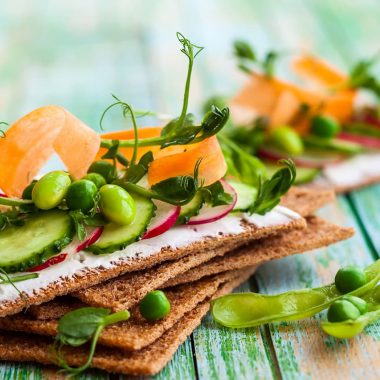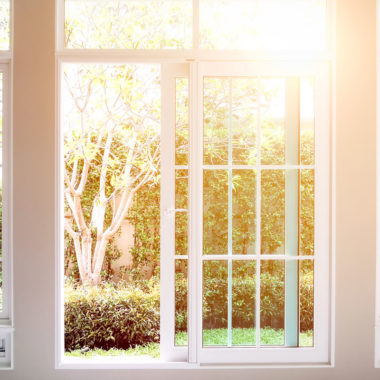Why should you do sport? Hmm, it’s not a good sign if you are still wondering. The positive effects of sport on health and wellness are indisputable. So go on, put your trainers on!
All medics, whether naturopaths, general practitioners, cardiologists, rheumatologists, orthopaedists or psychiatrists, extoll the virtues of physical exercise. You might even say that they are past doing so, so obvious is it that getting moving is as important as breathing.
During one of her recent workshops on family naturopathy, the naturopath and psychotherapist Odile Chabrillac* stressed that: “In naturopathy, there are three pillars: diet, physical exercise and mental relaxation. These are enough to keep people on the path to good health (or bring them back onto it). But really, physical exercise should top the list. Because eating healthily without doing any exercise won’t get you to optimal health. It’s better to eat a little less healthily but get some exercise, because movement is essential to life!”.
Three women to follow!
Getting moving involves deciding to do so.
That’s what Tatiana, Eugénie and Nolwenn have long been doing. Whether they got into sport as infants or later in life, these three women can’t imagine life without it.
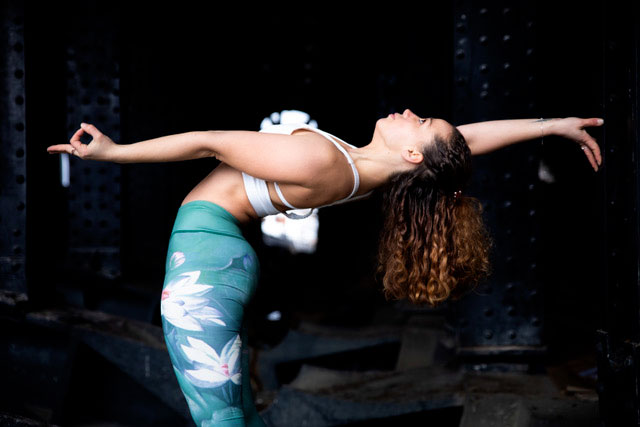
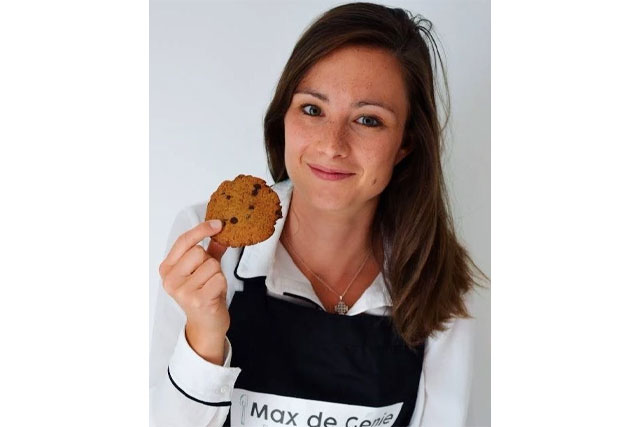

- Tatiana Orlhac, a health and wellness coach, is behind the concept Zen & Boost, a new way of taking care of yourself in line with your cycles and lifestyle. It combines relaxation (nidra yoga and Thai massage) and movement (vinyasa yoga and muscle strengthening).
- Eugénie Girardeau, an enthusiastic high-level sportswoman, is a triathlete and foodie. Three years ago she set up Max de Génie and with her associate Maxime offers home baking mixes and organic flours with a low glycaemic index, to allow diabetics and sporty types to treat themselves healthily.
- Nolwenn Thomazeau is behind the app Your Power Class (which at the moment is free), which she refers to as the Netflix of sport. This digital platform brings together the best of high-intensity sport online.
These three inspiring women express the extent to which sport helps them to feel happy in their own skin and in a good place mentally.
Happy in your own skin and in a good place mentally
20 years ago, coaches and healthcare practitioners swore only by high-intensity activity. These days we know that moderate, regular physical activity can be every bit as good for your health.
A large-scale study carried out around the 80s (from 1976 to 1989 to be precise) on more than 200,000 volunteer nurses allowed the WHO to officially recommend doing two and a half hours of moderate activity (walking) per week or an hour and a quarter of more strenuous activity, along with muscle strengthening, twice a week, to stay in good shape.
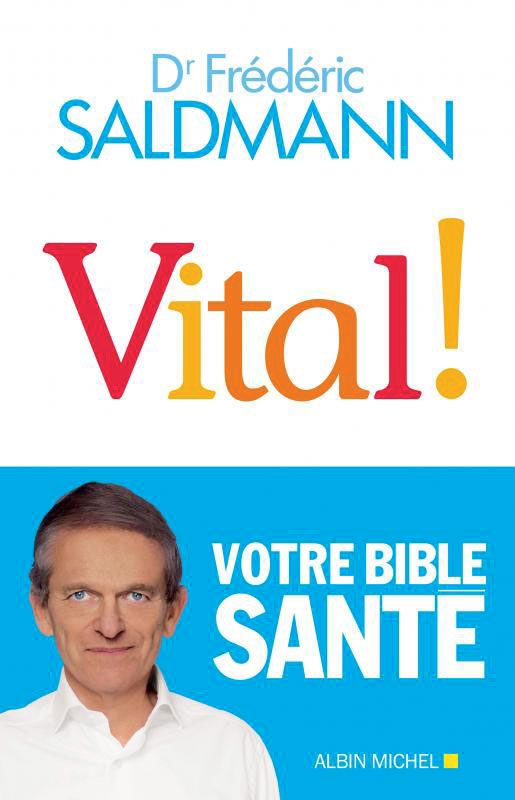
There’s no point in embarking on a sport that gives you pains when a brisk daily walk can be enough. In his book Vital, published by Albin Michel, Dr Frédéric Saldmann sums it up this way: “Walking at for at least 30 minutes without stopping, walking 3,000 steps (which equals about 4 kmph), ideally in the morning to synchronise the bodyclock with the sun, is the best medicine I know. It effectively guards against cardiovascular disorders and many types of cancer. Moreover, your walk will put you in a good mood and you will get a far better night’s sleep. By walking briskly, you’ll also stimulate circulation in your brain to think faster. A better-oxygenated brain increases your brain power and mental faculties”. Enough said!
If you want to go further down the list of positive effects of sport, put your trainers on and read on. The list of advantages to getting moving is a long one!
C for… Cycle
Days, weeks, months and years are all governed by cycles. To be aligned with them, you can do different sports depending on the season and also listen to your body. “I offer sports coaching based on this reasoning, because I’m sure that doing physical exercise in close alignment with the cycles promotes good health and contentment”, explains Tatiana.
C for… Cholesterol
Sport brings down the concentration of “bad” cholesterol in the blood sharply, whilst promoting the transit of “good” cholesterol towards cell membranes. As for excess cholesterol, it gets directed towards the liver to be expunged. Movement promotes proper functioning of this sorting of good fats from bad. More precisely, physical exercise increases the number of large molecules (the least toxic ones) and helps reduce the amount of small ones (those that promote the development of cardiovascular disorders). “I saw my body change over time as I did high-intensity sports: greater flexibility and a firmer, more toned look. I know and feel that by doing different sports regularly, my body draws on its energy reserves and not least fat reserves. So my cholesterol and blood sugar levels are regulated”, explains Nolwenn.
C for… Competition
Doing a sport on your own for which you set yourself targets, or doing sport as part of a group, make it possible to compete in a healthy way. You learn how to fight, persevere and win. Sometimes you also learn how to lose, without losing your sense of sportsmanship. The values instilled by sport are very formative ones.
As well as competition, collective sport brings the idea of cooperation with it. It’s about reaching a goal together.
“Sport is a way of pushing past your limits, telling yourself that you are able to rise to challenges, alone or as part of a team. This spirit of cooperation and competition is what entrepreneurship is based on. The similarities between sport and business are clear to see”, says Eugénie. “For example, understanding the merit of everyone having their place within a rugby team (having played the sport for 7 years myself) brings teambuilding within a company into sharper focus. Each member must be in their rightful place for all of them to work well together”, adds the young entrepreneur.
D for diet!
Haven’t we all at some point felt deprived by a draconian diet to some extent? That’s a shame, because it’s far easier to burn calories through sport than to rein in your intake. And at that point a real virtuous circle is set in motion. The more you take care of yourself by doing a sport regularly, the more you are intuitively inclined to eat healthily. And if you have been on a diet, physical exercise stops you from putting the weight back on. “After a diet, it’s not always easy to settle at what is a healthy weight for you. It’s easy to fit sport into your schedule. To begin with, you schedule in very short 10-minute sessions, chop and change different activities and make it all about enjoyment. Then you make the sessions longer. It’s more sustainable and effective than any diet when it comes to weight loss”, stresses Nolwenn.
G for… Glucose
The muscles, liver and pancreas need sugar to work. When overly taxed by physical exercise, the muscles in particular need a higher glucose intake. Sugar’s two partners, the liver and pancreas, are essential links in this “sugar-exertion” chain. As for the liver, it releases glucose into the bloodstream, whereas the pancreas makes insulin to promote the distribution of this glucose to all of the cells in the body. Daily physical exercise makes it possible to regulate glycaemia (the blood sugar level) and prevent the development of diabetes. “That way, you go easy on the pancreas and in the long run prevent all glycaemia-related disorders. The more you tire yourself out with heavy, fatty, acidic and sugary meals, the more you exhaust the pancreas and the more likely you are to set off the development of type 2 diabetes, the ailment of the 21st century” explains Eugénie. She looked into the connection between sport and glycaemia long ago.
L for… Life!
Practised regularly, sport lengthens lifespan substantially. A study carried out over 10 years on 650,000 American subjects (those with a sedentary lifestyle versus those doing just 11 minutes of sport per day) showed that past 40 years of age, those in the active group lived some two years longer than those in the sedentary group. Moreover, sitting down for six hours in a row without taking a break (or not enough breaks) increases the risk of setting off a disorder related to a sedentary lifestyle (cardiovascular disorder, cancer or diabetes). If your occupation means that you have to sit for particularly long periods, take breaks with walks or stretches and drink water. “At the same time, do proper brisk walks of 15 minutes for cardio work, 40 minutes of muscle strengthening to improve posture, 10 minutes of stretching or yoga for flexibility and relaxation. Sport reflects life, its pace and what we need in order to live. To the point of getting hooked on it!”, reports Nolwenn.
M for… Memory
When doing sport, first you burn the sugar stored in the liver and muscles, then fat molecules (triglycerides). The combustion process gives off lactic acid and carbon dioxide which, upon entering the bloodstream, set off reactions in the brain and not least the hippocampus, an area related to memory power. This area is also the one that produces neurones! Elderly people who start doing a physical activity, even a gentle one, notice a slower decline in their cognitive and intellectual function. “From day to day, I notice the impact of sport on my memory and ability to concentrate right away”, reports Eugénie. “At lunchtime, if I take a break, take a brisk walk, go jogging or do an aerobic activity, I improve my blood circulation and the oxygenation of my brain. I start the second half of my day with greater concentration and memory power”, she adds.
M for… Mood
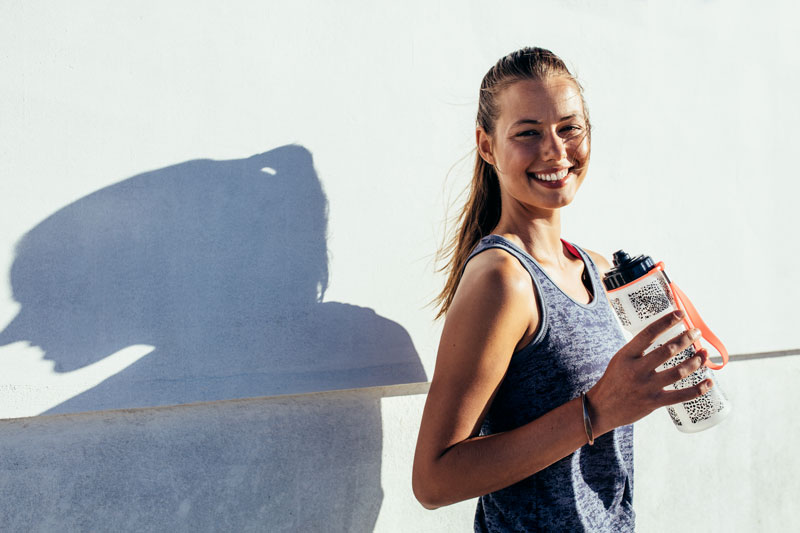
When you do sport, the brain releases endorphins (those happy hormones that we hear so much about), particularly when the exertion is strenuous (during a long-distance race for example). “When I come out of a sport session I feel happier, I’ve got more drive to do things afterwards. The drive that it takes to get your body moving generates drive for life!”, says Tatiana.
M for… Medicine
Preventing or curing illnesses takes a healthy diet, a kindly psycho-emotional environment and regular sporting activity. “I’ve always enjoyed doing sport, with that enjoyment being linked to intensity and exertion. And the virtuous circle has always been set in motion: sport, a healthy diet and self-care. When you eat a poor diet and drink alcohol, you can’t do as well at your chosen sport. Personally, I’m very rarely if ever ill, and I soon recover. All the physiological functions are optimised by regular sporting activity, and it boosts the immune system. In my view it’s the best medicine”, concludes Eugénie.
R for… Reconciliation with yourself
It might be that you wake up in the morning looking awful and feeling tired. If the urge to snuggle down on the sofa and watch TV box sets prevails, that’s OK. But only in small doses. If the symptoms persist, get changed and go and do a sport session. Either alone or as part of a group, but do get out and get moving! This way of shaking things up and lifting your spirits is the best way to reconcile with yourself. “Sport helps me to be more resilient mentally. Because it takes rigour, discipline and regular practice. When you hit the targets that you set yourself, it improves your self-esteem. It’s an effective and sustainable way of reconciling with yourself. It can be the case for pregnant women, too. Continuing with gentle physical activity, under medical supervision, allows pregnant women to enjoy all the positive physiological and psychological effects of sport and to feel contented in pregnancy”, states Tatiana.
S for… Sleep
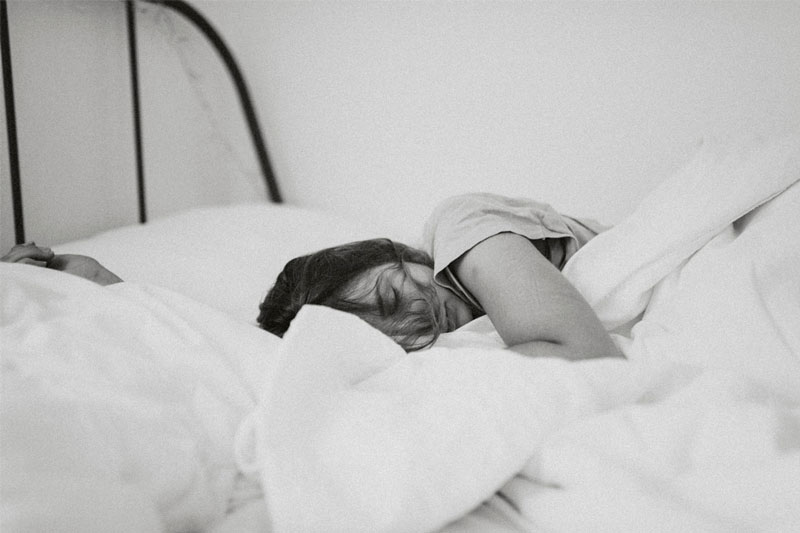
The argument “I don’t do any sport because I can only fit it in in the evening, and that keeps me awake at night!” does not fly. Doing sport four hours before going to bed does not compromise deep sleep quality at all! That much has been proven! Quite the opposite – the good kind of tiredness felt after sport (even more so out in the fresh air) promotes sleep. In case of a high-intensity sport session, you have to take some time to wind down before going to bed. Because the heart needs to get back to its normal rate, then slow down markedly to put the whole metabolism in a position to get a good night’s sleep. This daily mini-hibernation is associated with a drop in body temperature. “I hiked the Stevenson Trail (GR®70) and the GR20 in Corsica, and every night I slept fewer hours because I was getting up early. However, I’d get a deep and totally restorative night’s sleep. When you get moving, you tire yourself out (good tiredness), you concentrate on your sport, you don’t dwell on your concerns and you fall asleep free of any worries”, reports Tatiana.
Bear in mind that a sedentary lifestyle is the fourth-biggest death risk factor worldwide after smoking, hypertension and diabetes. Let alone that these are themselves exacerbated by a sedentary lifestyle. It’s a real vicious circle. In Europe, some 40% of adults (those over 15 years old) don’t do any sporting activity, 40% do so regularly and 20% do so from time to time (Eurobarometer survey 2010). So there’s plenty of room for improvement.
Here in France, 40% of our teenagers (20% of whom are overweight) do not do any sport outside of PE at school. You should do sport to set a good example. Perhaps you’ve heard of behaviour modelling?
“Enjoyment can show up over time, don’t give up! Sport releases so many endorphins that it always brings enjoyment with it”, stresses Eugénie.
“Being sporty also makes you want to approach other people and other cultures. I travel to soak up different trends, different sporting activities, different sensations, and that’s all about enjoyment“, adds Tatiana.
“The hardest part is getting started. After that, enjoyment shows up and the desire to feel those sensations again generates regular practice (or even addiction). There’s always a reward to be had“, concludes Nolwenn.
*Odile Chabrillac, director of the INH, Institut de Naturopathie Humaniste, runs naturopathy courses.


